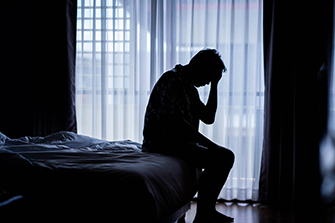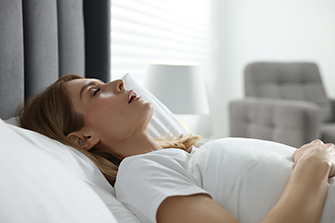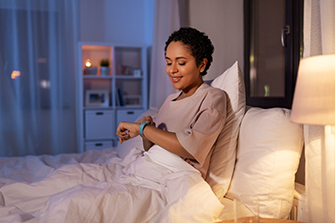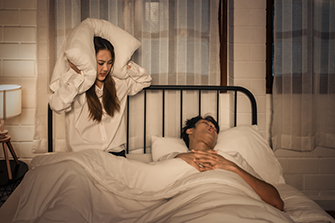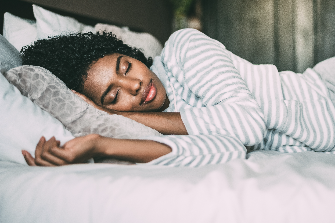Struggling with Living with Sleep Apnea?
Living with sleep apnea can be difficult. Even though you may be finding relief using your CPAP machine, things might not still be perfect. Your partner may still not have found relief thanks to the loud machine you now use, you are finding it hard to maintain, and much more. If you are struggling with your mental health while living with sleep apnea, we are here to help. Keep reading to learn more about how to manage your mental health with sleep apnea and how proper sleep apnea treatment without a CPAP machine can help transform your life.
Understanding Sleep Apnea
About 50 to 70 million Americans have a sleep disorder. There are two types of sleep apnea:
- Obstructive sleep apnea, also called OSA, happens when your upper airway becomes blocked many times while you sleep. The blockage can reduce or completely stop airflow. This is the most common type of sleep apnea. Factors such as obesity, large tonsils, or changes in your hormone levels can narrow your airway. Any of these factors could increase your risk for obstructive sleep apnea.
- Central sleep apnea occurs when your brain does not send the signals needed to breathe. Health conditions that affect how your brain controls your airways and chest muscles can cause central sleep apnea.
Obstructive sleep apnea is caused by conditions that block airflow through your upper airway during sleep. For example, your tongue may fall backward and block your airway. Central sleep apnea is caused by problems with the way your brain controls your breathing while you sleep.
Your age, family history, lifestyle habits, other medical conditions, and some features of your body (for example, your neck or tongue) can raise your risk for sleep apnea. But healthy lifestyle changes can help lower your risk.
Finding Support
If you have sleep apnea, you may be dealing with the following struggles:
- Bedsharing partner frustrations due to your snoring or loud CPAP machine
- Difficulty maintaining your CPAP machine
- Difficulty traveling with your CPAP machine
- Weight gain
- Daytime sleepiness
- Anxiety
- Depression
- Insomnia
If this sounds familiar, it is time to seek support for your sleep apnea issues. Some of the things you can do are talk to your doctor about other options, such as the Vivos Method, and find support through a therapist, family, and friends. There are also many support groups available, including those online, and speaking with like-minded people can help you navigate this journey.
Getting Rid of Your CPAP and Finding a New Way
One of the best ways you can help boost your mental health while dealing with sleep apnea is by finding a new treatment that isn’t a CPAP machine. CPAP machines require a lifelong commitment, but there are other, less invasive ways to treat it.
At Advanced Sleep and TMJ Solutions, we are Vivos-trained dentists, and we will conduct a comprehensive evaluation, taking all relevant clinical records, in order to formulate a customized treatment plan. This treatment plan will likely include a number of integrative therapies that have been proven to ensure the best treatment outcomes, and you can find complete sleep apnea relief in as little as 18 months.
For more information, visit us at AdvancedSleepandTMJSolutions.com!
